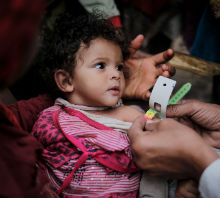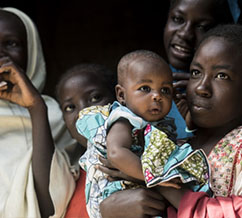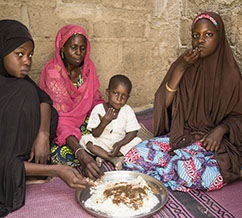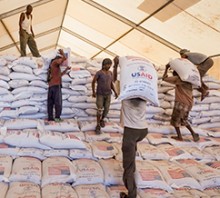Speeches Shim
As of September 4, UN Mission in the Republic of South Sudan and relief agency staff had completed the relocation of nearly 3,500 internally displaced persons from UN House protection of civilians site 3 in the capital city of Juba to a site in the city’s Mangateen neighborhood, the UN reports. Relocation activities commenced in late August in response to intracommunal clashes at the site. Relief organizations are assessing needs of the relocated population and planning response activities.
On September 3, USAID Counselor Thomas H. Staal announced approximately $173.6 million in additional FY 2018 U.S. Government (USG) funding for the humanitarian response in the Lake Chad Basin region, comprising areas of Cameroon, Chad, Niger, and Nigeria. The figure includes nearly $72.7 million from USAID/OFDA, approximately $74.2 million from USAID/FFP, and $26.8 million from State/PRM. With nearly $934.4 million in FY 2017–2018 humanitarian funding, the USG remains the largest donor to the Lake Chad Basin response
On August 9, a Kingdom of Saudi Arabia (KSA)-led Coalition airstrike hit a school bus near Dahyan market in northern Sa’dah Governorate, resulting in at least 40 deaths and injuring more than 60 people, according to the Office of the UN High Commissioner for Human Rights (OHCHR). Relief actors issued statements condemning the incidents and urging parties to the conflict to respect international humanitarian law and the safety of civilians
From mid-April to late May, fighting between government and opposition elements resulted in more than 230 civilian deaths in Unity State, with the UN reporting that government forces deliberately attacked civilians during the clashes. A recent UN investigation found evidence of extreme violence—including targeted killings and sexual violence—against civilians during the fighting.
Insecurity persisted throughout the Lake Chad Basin region in July, with attacks by suspected Boko Haram elements resulting in civilian casualties in northeastern Nigeria’s Konduga Local Government Area (LGA) in Borno State and Chad’s Lac Region, international media report





Comment
Make a general inquiry or suggest an improvement.